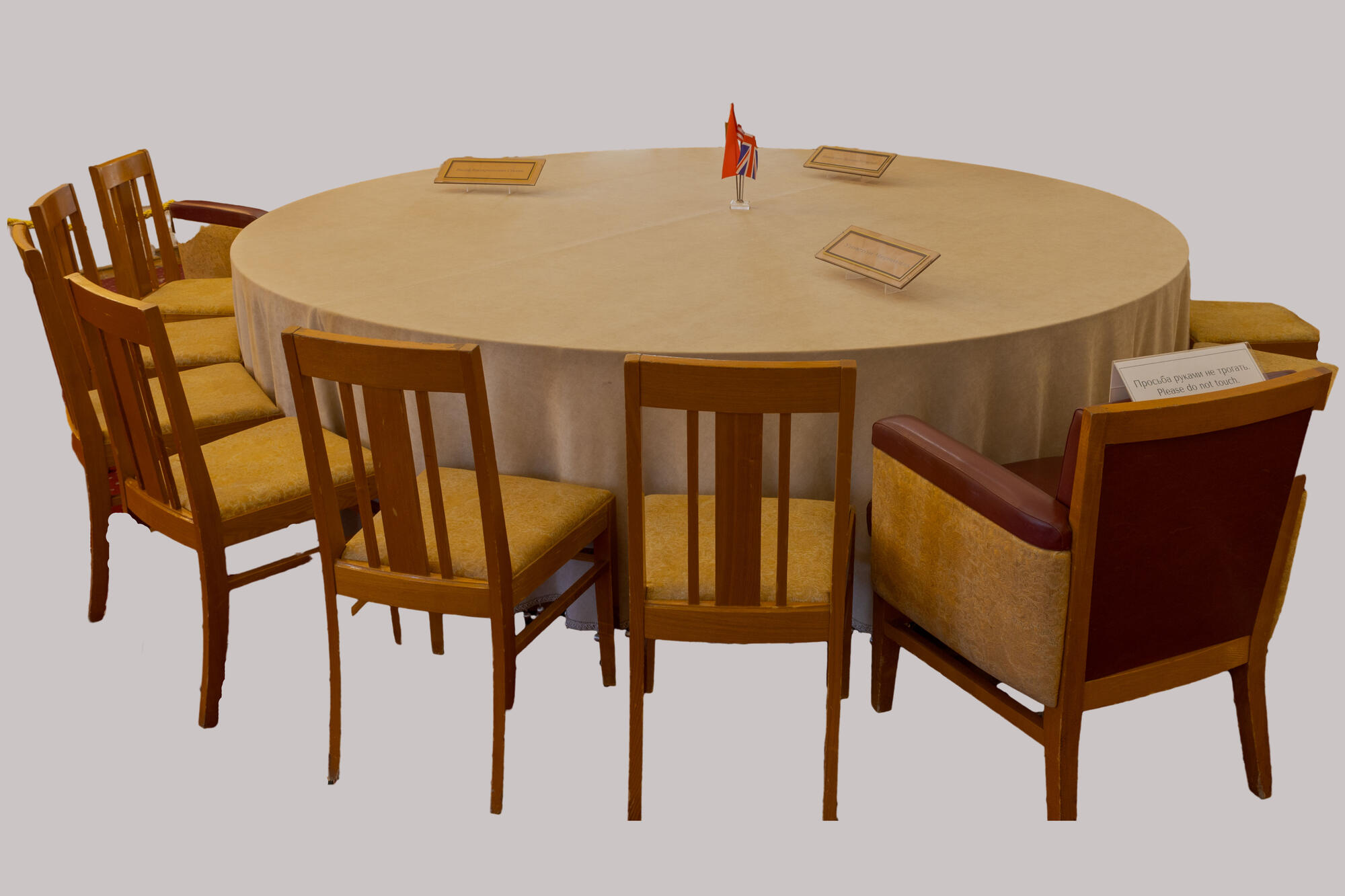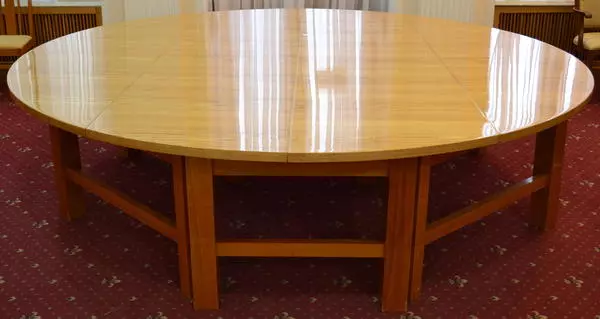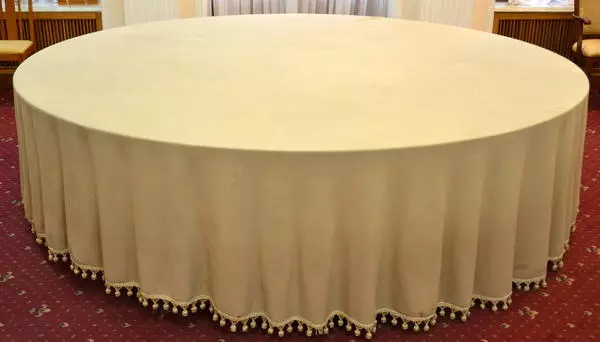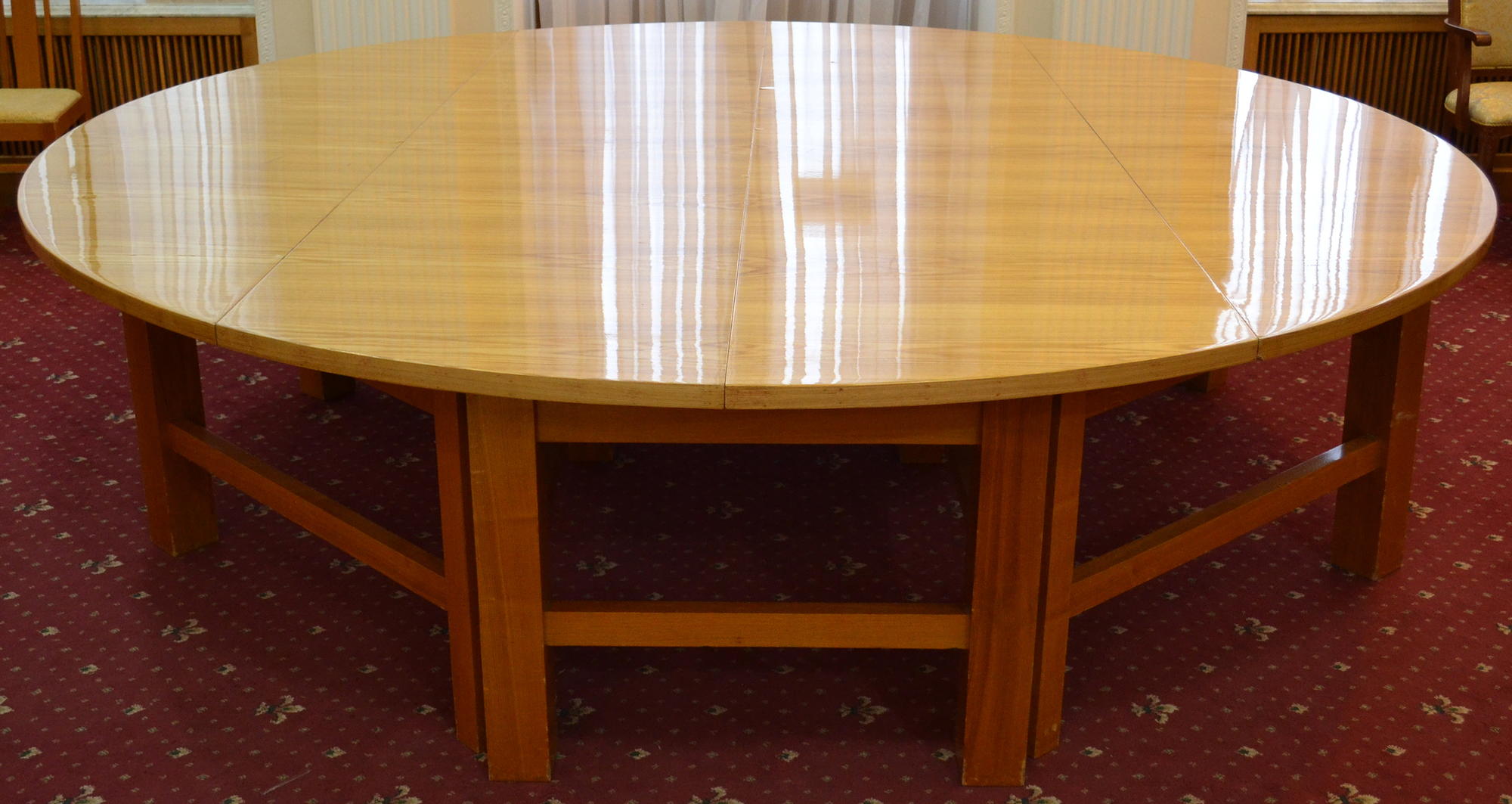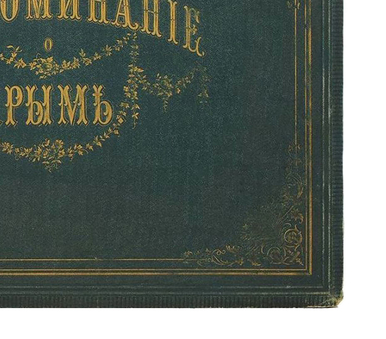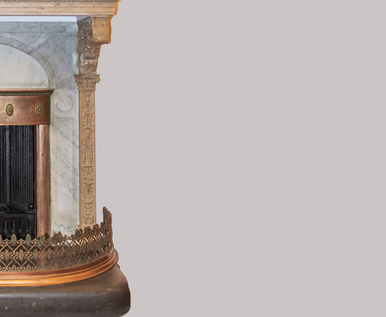The Front Lobby of the Livadia Palace Museum houses a round meeting table that was specially made for the opening of the exhibition hall in the Livadia Palace in 1974. This item became the first exhibit of the museum.
The table is made of polished light-colored hardwood. The top of the table consists of four tightly mounted parts, standing on six rectangular legs arranged in pairs along the diameter of the table. Four legs are attached by special devices to each of the table’s legs. This allows them to be moved. The apron of the table (the frame connecting the legs) has a smooth surface.
In 1945, eight plenary sessions of the Yalta Conference in 1945 were held at a similar round table. For such a high-profile event with the heads of friendly states as participants, furniture was delivered to Crimea from the best hotels in Moscow and Leningrad. Transportation was carried out by rail, and then by trucks to the peninsula’s Southern coast.
During the Yalta Conference, which took place from February 4 to 11, 1945, Secretary General of the Council of People’s Commissars of the USSR Joseph Stalin, British Prime Minister William Churchill and President of the USA Franklin D. Roosevelt sat at a table in the White Hall of the Palace. In addition to the heads of the Big Three, members of the delegations also participated in the conference. From the Soviet Union’s side: People’s Commissar of Foreign Affairs of the USSR Vyacheslav Molotov, First Deputy People’s Commissar of Foreign Affairs of the USSR Andrey Vyshinsky and Ivan Maisky, Ambassador to the United Kingdom Fedor Gusev, Ambassador to the USA Andrei Gromyko. From the United States — Secretary of State Edward Stettinius, Chief of Staff to the Commander in Chief of the United States Army and Navy William D. Leahy, Special Assistant to the US President Harry Hopkins, Director of the Office of War Mobilization and Reconversion Judge James F. Byrnes, Ambassador to the USSR Averell Harriman, Director of the Office of European Affairs H. Freeman Matthews, Assistant Secretary of State Charles Bohlen. From Great Britain — Secretary of State for Foreign Affairs Anthony Eden, Ambassador to the USSR A. Kerr, Secretary of the British Cabinet Sir Edward Bridges.
After the conference, the table, as well as the rest of the furniture, was taken away.
The table is made of polished light-colored hardwood. The top of the table consists of four tightly mounted parts, standing on six rectangular legs arranged in pairs along the diameter of the table. Four legs are attached by special devices to each of the table’s legs. This allows them to be moved. The apron of the table (the frame connecting the legs) has a smooth surface.
In 1945, eight plenary sessions of the Yalta Conference in 1945 were held at a similar round table. For such a high-profile event with the heads of friendly states as participants, furniture was delivered to Crimea from the best hotels in Moscow and Leningrad. Transportation was carried out by rail, and then by trucks to the peninsula’s Southern coast.
During the Yalta Conference, which took place from February 4 to 11, 1945, Secretary General of the Council of People’s Commissars of the USSR Joseph Stalin, British Prime Minister William Churchill and President of the USA Franklin D. Roosevelt sat at a table in the White Hall of the Palace. In addition to the heads of the Big Three, members of the delegations also participated in the conference. From the Soviet Union’s side: People’s Commissar of Foreign Affairs of the USSR Vyacheslav Molotov, First Deputy People’s Commissar of Foreign Affairs of the USSR Andrey Vyshinsky and Ivan Maisky, Ambassador to the United Kingdom Fedor Gusev, Ambassador to the USA Andrei Gromyko. From the United States — Secretary of State Edward Stettinius, Chief of Staff to the Commander in Chief of the United States Army and Navy William D. Leahy, Special Assistant to the US President Harry Hopkins, Director of the Office of War Mobilization and Reconversion Judge James F. Byrnes, Ambassador to the USSR Averell Harriman, Director of the Office of European Affairs H. Freeman Matthews, Assistant Secretary of State Charles Bohlen. From Great Britain — Secretary of State for Foreign Affairs Anthony Eden, Ambassador to the USSR A. Kerr, Secretary of the British Cabinet Sir Edward Bridges.
After the conference, the table, as well as the rest of the furniture, was taken away.
